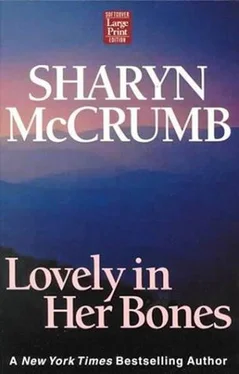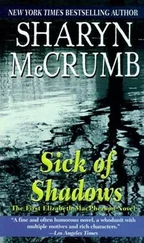“Comfrey Stecoah. Reckon I am interested in Indians, seeing as how I am one. I’m looking for Dr. Lurch. Might you be him?”
“It’s pronounced Lair-ka,” the professor murmured. The correction was automatic. “It’s a Danish name. And you say you’re an Indian?”
“Uh-huh,” he grinned, reading the thought on Lerche’s face. He did not look like most people’s conception of an Indian, and he knew it. He was tanned, but not as dark as many of the Southwestern Indians; his features included a nose too broad to fit the stereotype, and-since he was shaved bald-his hair was a matter for speculation. “I came to see you because I hear you’re an expert on Indian cultures.”
“I have done some work with Plains Indian cultures,” said Lerche cautiously. “What would you like to know?”
“It’s not a question of knowing. It’s a question of proving. I know your work involved the Indians out west, but you’re the closest thing we got to an expert in these parts, so you’ll have to do.”
Lerche smiled in spite of himself. “What, exactly, will I have to do?”
“My people want you to conduct an archaeological expedition on our land. Well, that is, it should be our land-to help us win our case.”
Lerche sighed. “Could you start at the beginning before I get any more confused?”
Stecoah grinned. “Sure. It’s like I said, my people-”
“Stop right there! Now, start with that. Who are your people?”
“The Cullowhees. We’re an Eastern Indian tribe up in the Appalachian Mountains. It’s a couple of hours’ drive from here. You ever heard tell of us?”
Lerche hesitated. “I’ve heard of the Cherokees,” he offered.
Stecoah sighed. “Who hasn’t? Well, we’re not them and they don’t need your help. They got their craft shop and their outdoor drama, and-oh, hell, who am I to knock that? I wish we had a deal like that.”
“The-Cullowhees, did you say?”
“Yeah, we’re a right small group. Less than a thousand folks, all living in the same little valley. But we don’t have any tribal recognition from the U.S. government, and we don’t have any tribal land. That’s where you come in. We need some help from an outside expert to help us get a land grant from old Uncle Sam.”
Lerche tapped his fingertips together as he considered the matter. “I guess it could be done,” he said finally. “If you get me some tapes of your tribal language and some samples of your pottery and other artifacts, and we could-”
“We can’t do it that way. We need you to do some digging to find evidence that this was our land. There’s a cemetery in the valley where our people have been buried for at least a hundred and twenty years that we know of. That ought to count for something with the government, shouldn’t it?”
“I suppose so, but wouldn’t it be simpler to get someone to do a study of your cultural patterns and link you up with the Cherokee or the Iroquois, so that you can get tribal status by association?”
“Wouldn’t work.”
“I seem to remember it being done that way once.”
“Yeah, but it wouldn’t work for us. We don’t do pots, ner tomahawks, ner any of that craft stuff. Never have. And the only tribal language we got is the one I’m a-talking right now.”
Lerche digested the information. He had no experience with Eastern Indians, but his work in the Southwest had led him to expect some vestiges of original culture, regardless of the years of exposure to white customs. How could they have lost all of it and still keep together as a tribe? It had the makings of an interesting study.
“Do you know anything about your origins?”
Stecoah leaned forward and put the knife back on the desk. “Now personally, I don’t hold much with the origin stories,” he drawled. “I reckon it’s enough that we’re Native Americans without having to put on some kind of dog-and-pony show about where we came from. But I know that if we’re goin’ to run this one by the Department of the Interior, that’s the kind of damnfool thing people are going to be asking.”
“I would imagine so,” Lerche agreed. He was listening to the man’s rounded vowel sounds, hoping for some sort of distinctive accent, but to Lerche’s unpracticed ear, Stecoah sounded just like the few Appalachian people he had met.
“The trouble is can’t nobody agree on where we came from. Some people want to think we’re descended from the Indians and settlers of the Lost Colony, but I don’t believe it. That was all the way across North Carolina on the coast. We’re mountain people. My mother claims we’re descended from a tribe called the Unakas who intermarried with some Moravian missionaries from Salem. Then there’s folk who claim some of Daniel Boone’s people left the party around the Cumberland Gap, and that they moved in with the local tribe, and that we’re the descendants of that mixture. It don’t matter a hill of beans to me, as long as we get the land. Which story do you reckon they’ll like the best in Washington?”
“I really couldn’t say,” murmured Lerche. “Perhaps I could recommend a qualified anthropologist who could study the matter for a few years and produce some kind of a theory based on more evidence.”
The door swung open and Milo, shrugging off his white lab coat, shouldered his way into the room. “Hey, Alex, I don’t know what-” He looked up and noticed the visitor. “Sorry. I didn’t know you were in conference.”
Alex smiled. “Milo, Mr. Stecoah is a representative of the… ah… Cullowhee Indians.”
Milo looked impressed. “Pleased to meet you, Chief.”
“Thanks. I’m not a chief. We don’t go in for that stuff. I was a master sergeant in the Army, though.”
“Mr. Stecoah wanted to consult us about a dig on his people’s land. He needs some authentication so that his group can apply for tribal status with the government, but I was telling him-”
“You been stonewalling me,” Stecoah growled. “Talkin’ about some kind of fancy study taking a couple of years. We don’t have that kind of time. The government’s about to turn our land over to some damned coal company for strip mining! We need help in a hurry, or we’ll have us a Trail of Tears, just like the Cherokees.” He grinned. “I’d rather have an outdoor drama like their’n, if it’s all the same to you.”
Alex Lerche hesitated. He was as ecology-minded as the next person, but he was uneasy about committing himself to such a project on short notice. He sighed. “Perhaps we could discuss this a bit further,” he offered. “Milo, do you have time to sit in?”
“Sure. Class is over. This sounds like a great idea to me!” He caught Lerche’s warning glance and subsided into polite interest.
“It might be a good idea for you to make some notes as we go along,” Lerche told him.
Milo tilted his chair back toward the door and reached in his lab coat for his pen. “Oh! I almost forgot what I came in here for,” he said, withdrawing a piece of paper from the pocket. “I found this in the hall and recognized your handwriting.”
Lerche took the piece of paper with the words “Mary Clare” scribbled all over the margins. It was the data sheet he’d left at home on his desk with the notes for his journal article. “Where-”
“I bet that lady dropped it,” said Stecoah. “She was waiting to see you, but she looked mighty upset.”
Alex stared at the sheet of paper and let the calamity sink in.
He knew that Tessa had found the paper. That was the only way it could have appeared in the hall outside his office. The fact that she had brought it must mean that she had decided to have a confrontation. He wondered if she would believe the truth, and even more if he could bring himself to admit it. He would have to talk to Tessa, though, before she did anything drastic. Women, he thought ruefully. At the skeletal level, the only difference between women and men was a piece of bone the size of his hand, but-he smiled to himself-the antemortem differences were vast. Tessa was going to be difficult about this, just when he needed all his energy to work on the discriminate function chart. That was what was really important. Couldn’t she see that? He wished he could just get away.
Читать дальше












